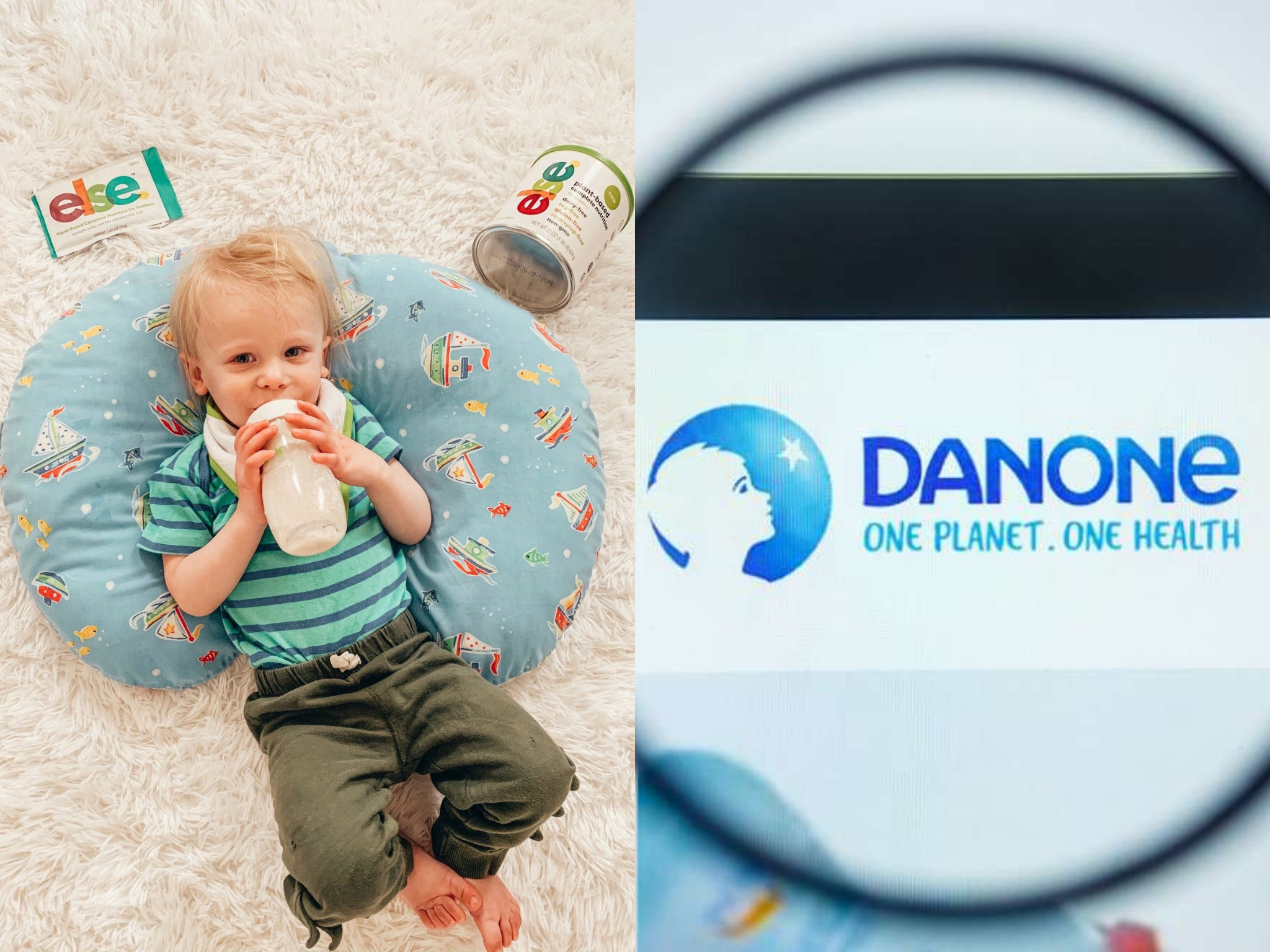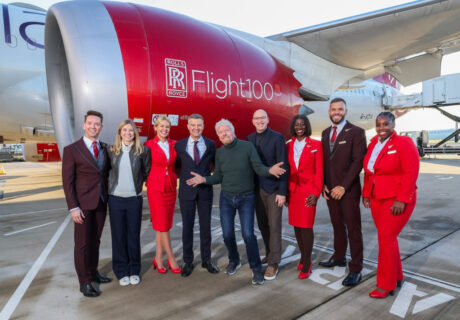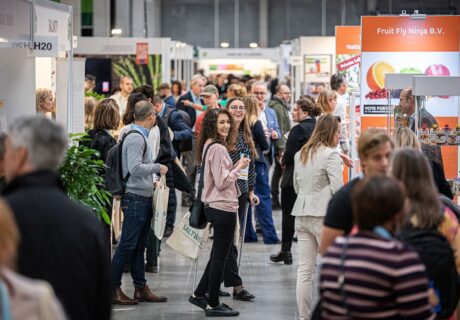5 Mins Read
French food giant Danone has signed a letter of intent with Canadian brand Else Nutrition to make a move into the vegan infant formula segment. Already commanding 71% of the UK market with Aptamil, Nutricia and Cow & Gate, the move will see Danone license Else’s products under its own branding.
Danone is expanding its plant-based operations via the lucrative and often controversial infant formula market. Through a letter of intent (LOI) signed earlier this month, the French dairy and drinks giant announced a collaboration with Israel-founded, Canada-based, vegan baby formula maker Else Nutrition.
According to one estimate, the global infant formula sector is currently worth $50.7B, and is set to expand by 5.6% annually to reach $66.4B. But it’s a market dominated by dairy-based formula, with around 90% of manufacturers relying on cow’s milk as the base ingredient, though a handful of alternative players rely on soy and rice.
Else takes a different approach, using ingredients like almond butter, buckwheat flour and tapioca maltodextrin. It has two products for toddlers: a complete nutrition powder, and one containing omega-3 and omega-6 fatty acids for brain development.
Else Nutrition’s rapid growth
Danone is the world’s second-largest baby formula maker – housing three brands in Aptamil, Nutricia and Cow & Gate – but is now venturing into the vegan market via a multi-stage partnership with Else. This will see Danone license the latter’s products for sale under its own branding, with the first part of the collaboration allowing the French company to produce, market and commercialise Else’s products as part of its own portfolio. The two will then negotiate other opportunities in addition to commercialisation. The two parties expect to conclude negotiations and sign a definitive agreement by the end of Q1 2024.
Else says its vegan instant formula is nutrient-dense, containing easy-to-digest, gluten-free carbohydrates, as well as a primary source of protein, fat, fibre and vitamin E. The company has won several awards for its products, including the Best Dairy Alternative honour at the 2021 World Plant-Based Awards and the Best Health and Diet Solutions award at Milan’s Global Food Innovation Summit 2017.
Until last month, Else’s offerings were only available in North America, where the infant formula market has been facing headwinds for over a year now. In February 2022, Abbott Nutrition shut its largest plant (controlling a fifth of the total US supply) and initiated one of the largest formula recalls in the country. It sparked an infant formula shortage that – while having improved – is still being felt. What’s worse is, it could happen again.
Many doctors warned parents against giving their toddlers cow’s milk, as it could trigger allergies, intestinal bleeding and electrolyte imbalances. This is what makes alternatives like Else crucial – and it certainly seems to have had an effect on the Canadian startup’s market presence, which expanded its retail presence from 3,000 to 13,000 stores across North America between Q2 2022-23. It also experienced a year-on-year revenue growth of 35% in the first half of 2023.
Baby formula market under investigation
Last month, Else released its plant-based formula for toddlers to the UK, marking the first stage of a wider European expansion. This raises an important question for Danone’s agreement to sell Else’s products under its name – the French giant controls a whopping 71% of the country’s market, which is now under investigation by the UK Competition and Markets Authority (CMA).
The CMA has found that manufacturers have raised prices by 25% in the last two years and increased profit margins amid the cost-of-living crisis. It says there are too few options in the market, with very limited supermarket private-label products, adding that not many parents are switching to cheaper alternatives.
The investigation was part of a larger retail inflation report by the watchdog. “We’re concerned that parents may not always have the right information to make informed choices and that suppliers may not have strong incentives to offer infant formula at competitive prices,” said CEO Sarah Cardell. “We will investigate this further and consider whether changes to regulations are necessary to ensure parents can get the best deal possible.”
Danone – whose revenue hit €27.7B in 2022 – paid out £175.6M in dividends to shareholders to shareholders last year. In response to the CMA investigation, it said its experience was that the baby formula market was competitive. “We recognise the challenges faced by parents due to inflation. During this difficult period, we have worked very hard to absorb the significant cost increases we have faced, make savings, and minimise any price increases,” a spokesperson for Danone UK and Ireland said.
“We are committed to best practices to maintain this and will work constructively on ways we can continue to deliver value and innovation to parents. We will also continue to engage with the CMA over the coming months,” they added.
Else’s entry into the UK market does diversify offerings a little – but the scope and areas of its partnership with Danone remain to be seen. The latter has previously dabbled with incorporating plant-based ingredients in its infancy formula, introducing a Dairy & Plants blend in the Netherlands.
Nestlé, which has a 14% market share in the UK, has filed a patent for a potential vegan baby formula. But it already sells a soy-based formula under its Good Start brand in Canada. Other makers of plant-based infant formula suitable from birth include Australia’s Sprout Organic (Australia) made from rice and pea protein, ProSobee® Plant-based Infant Formula, Earth’s Best® Non-GMO Plant Based Infant Formula (both soy-based and both in US) and Bebe Mandorle Organic Anti-Reflux Rice-Based Infant Formula (French).
Some companies are also making lactoferrin via cellular agriculture. This is a whey protein found in human milk and bovine colostrum produced just after birth (sometimes called ‘first milk’) and often used in infant formula. Singapore’s TurtleTree (which earned a self-affirmed USDA GRAS approval recently) and New York-based Helaina are the two major players in this space, both using precision fermentation technology to create these proteins aimed at the formula sector. Israel’s Wilk (cell cultivation) makes lactoferrin too, though it’s using its proteins to create a breast milk alternative, while North-Carolina based BIOMILQ is making cell-cultured breast milk, as does French newcomer Nūmi.
The post Plant-Based Infants: Danone to Enter Vegan Baby Formula Market with Else Collaboration appeared first on Green Queen.





